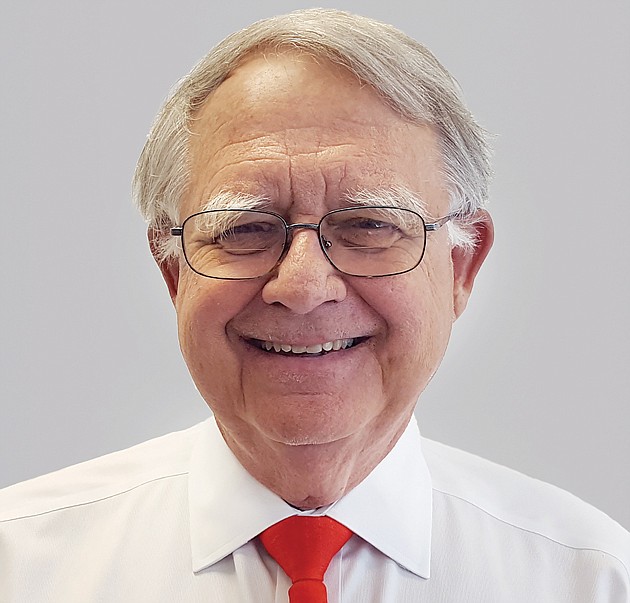- November 24, 2024
-
-
Loading

Loading

Bruce Lauer's commercial real estate career spans 46 years, beginning with the Allen Morris Co. in Miami. In 1976, the Ohio native and a trio of partners formed the Clark-Biondi Co., which was sold to commercial real estate brokerage Grubb & Ellis nine years later.
At 71, his role at Cushman & Wakefield straddles both being a rainmaker and mentor to younger brokers. Last month, he was inducted into the National Association of Office and Industrial Parks' Tampa chapter's Hall of Fame in recognition for his “significant professional and personal accomplishments.” Past recipients of the award include Dick Beard, Mel Sembler, Alfred Hoffman, Ron Weaver, Evelyn Andretta and Bill Eshenbaugh.
How did you come to be involved in the business, what appealed to you and why did you stay in it?
After graduation from college I went to work at Price Waterhouse, which at the time was a big accounting firm. It was a great place to go after school, and I learned a lot and stayed there right up until the time I was drafted and went to Vietnam. That really helped me grow up. When I returned to the U.S., I found I had developed a real distaste toward public accounting. I was assigned to work the account for Borden, and I would go to their accounts receivable department, and I determined I just didn't like the stigma of being there. And from there, I really just fell in love with real estate. I learned that property management was a way to generate revenue, and then I learned that leasing generated even more revenue for a property. At the time, I was writing checks to Morris agents, sometimes in the hundreds of thousands of dollars, and I thought, 'There must be something to that.' So I transitioned from accounting into leasing.
Fast forward, and I think I stayed in the business because I was able to develop contacts, contacts that I have managed to maintain for some years, and I know how, still, to get my way in a door, and that's largely my value at Cushman. And it continues to excite me because the platform that's been developed at Cushman & Wakefield is, in my opinion, second to none. There's nothing in the field of commercial real estate that we can't, or aren't, doing, and that's a very good thing.
What's changed in the commercial real estate business over the past five decades?
I'd say the sophistication of the landlords, the sophistication with respect to the companies that occupy space have both changed dramatically, along with the sophistication of the technology, of course. I'm an old fuddy-duddy, I know just enough to get around a computer program. But I have young people who work with me, and the things they can do are no less than amazing. Our capital markets people are incredible, too, the things they do to ready a property to sell. I shiver at the thought of trying to start a commercial real estate company today, in fact, because unless one has a true specialty, it's just so hard to compete with the resources and technology the bigger firms have in their possession.
What hasn't changed during your time in the business?
The need for trust and confidence from the client, those are two things that always need to be there. For large institutions owning real estate, what hasn't changed is that the budget is where the buck stops. You need to come in on budget to keep the client happy. For the most part, it's not rocket science. Trust goes a long, long way, and you live or die by your reputation. It's priceless.
You mentioned the role of technology earlier. How specifically has that changed the industry over the years from what you've seen?
The bigger firms in the industry, the Cushman & Wakefields of the world, have come to rely on technology so much, and for good reason. Our company needs to connect some 46,000 people around the world. Without it, today, you flounder...and as a service firm you need to stay one step ahead of your client, because they can make technology hum, too.
What do you hope your legacy in the business will be?
In a word, success. Now, what is success? Success can have many different definitions, depending on the person and the situation. For some, success is defined by or has to do with money, and for others, like me, it's the ability to receive an award that comes from one's peers, as I was fortunate enough to do from NAIOP. In my mind, there's no greater success than that.
Where do you see the business heading over the next 10 years or so?
I see further consolidation, especially in regards to the service firms. Some companies that exist today, I believe, will be gobbled up. Now, that said, there will always be a place for boutique firms, because for the most part the national firms all gravitate toward the larger corporate or institutional accounts. Boutique firms will flourish, but I do think there will be less and less of them.
What did the NAIOP Hall of Fame induction mean to you?
When you look at who else has received that award over the years, it's all people I consider icons, people I trust and respect. As I said it meant the world to me to be recognized by my peers. I was a bit overwhelmed when I received the call from my colleague Hank Brenner, telling me I had been chosen.